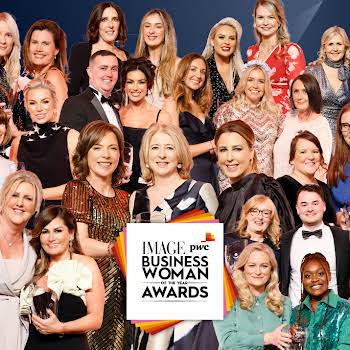
Trying to start a ‘side hustle’? Here are 6 tips to remember (before you do)
With work-life ever-changed thanks to Covid-19, many may be thinking of taking on some extra work, now that so many of us can do it remotely for the foreseeable. Here, we round up a few things to consider before you do so.
The professional landscape is dramatically changing (and especially has, no thanks to this pandemic); more and more of us are saying no to a traditional, permanent job and opting for freelance and contract work. We know by now that there’s no such thing as a job for life anymore and the majority of us may even switch careers more than once over our lifetime.
Self-employment is more popular than ever, and though recent CSO figures indicated a slight decline, chances are, it’s something that almost everyone has thought of, at some point in their working lives. Indeed, many start their freelancing life with a ‘side hustle’; testing the waters before they move it into a full-time career or business.
For companies, using contract workers allows them to source the best talent for specific projects, bringing in fresh skills and ideas. For workers, it can offer more varied career prospects, increased earnings and a more flexible way of working.
Though, naturally, there are downsides for both parties; contract employees can be costly (depending), and for the freelancer in question, there is that added sense of insecurity and potential to work longer hours to break even. But still, these factors don’t act as a deterrent for the self-employed – for many who want a fresh start, the challenge only spurs them to succeed.
But, for me, as a writer who recently entered the freelance world, there were things I wish I’d known beforehand. I spoke to Career & Coaching Psychologist Sinéad Brady of who offered some wise words of wisdom for those thinking of going it alone.
Remember, it doesn’t happen overnight
“Everyone thinks it does,” says Sinéad. “That it’s as simple as thinking of the idea, giving it a few weeks and making a move. But it really doesn’t happen overnight. In my experience, it will take well over a year to get your freelancing off the ground.”
Preparation is key
“And we’re talking about at least 18 months of preparation here. In that time, you need to be saving at least 3/4 months salary in case you get off to a slow start initially because you still need money to pay the bills, regardless and you need to start putting yourself out there, maybe starting a bit of the work on the side, in the evenings or on weekends. The earlier you start this, the better, but believe me, when I say, most of the work will be at the beginning,” she explains.
And it could be as simple as making the decision not to be a ‘forever freelancer’ – this writer has set herself the goal of 6 months to a year max of trialling it out and then re-assessing. Even if it turns out to be longer, the fact that I contained it to what I feel is a realistic timeframe means I feel a lot of pressure is taken off.
As is calculating net income and gross income before you set your rates for work
This is a crucial point, that, this freelancer admits escaped her at the very start. “You need to work out how much you need to earn that includes tax, so you know not to undercharge for your work.”
You also need to remember that the figure should cover you so that you’re earning enough to save some a month – with generally, 20% to 30% set aside for tax, depending – in case you’re sick and can’t work or to cover holidays – none of which you get covered for you as a freelancer.
Also worth bearing in mind is to not get into the cycle of taking badly paid work because work equals money. It sounds counter-productive, but there will actually be some work that you can’t afford to do because it’s too costly in terms of time and doesn’t pay enough. Taking on this type of work will stop you from getting or searching for the better-paid work that could mean the difference to success or failure as a freelancer.

Start building your profile as soon as you can
“This goes back to really simple basics of the fact that people can’t read your mind,” Sinéad continues. “If people don’t know you’re out there, you’ll find the task of getting regular work all the more difficult. Start reaching out to contacts, polishing your CV, working out rates – and well before you finish your ‘regular’ job.”
Know the right day to send those ‘follow up’ emails
This particular day is a Wednesday at 10 AM, according to Sinéad, who says mid-week is giving employers a chance to catch up after the weekend and the morning means they are more likely to spot them in time, as opposed to while they’re running out the door.
But be careful of overdoing those casual coffee meetings
These sound lovely, and in most cases, can be very beneficial but it’s important to be aware that these meetings are impinging on the time you could be working,” Sinéad advises. “Keep them short, always buy a coffee for those you invite to meet you and don’t give away all your ideas in the one go! Good luck!”
This article was first published in October 2020.























